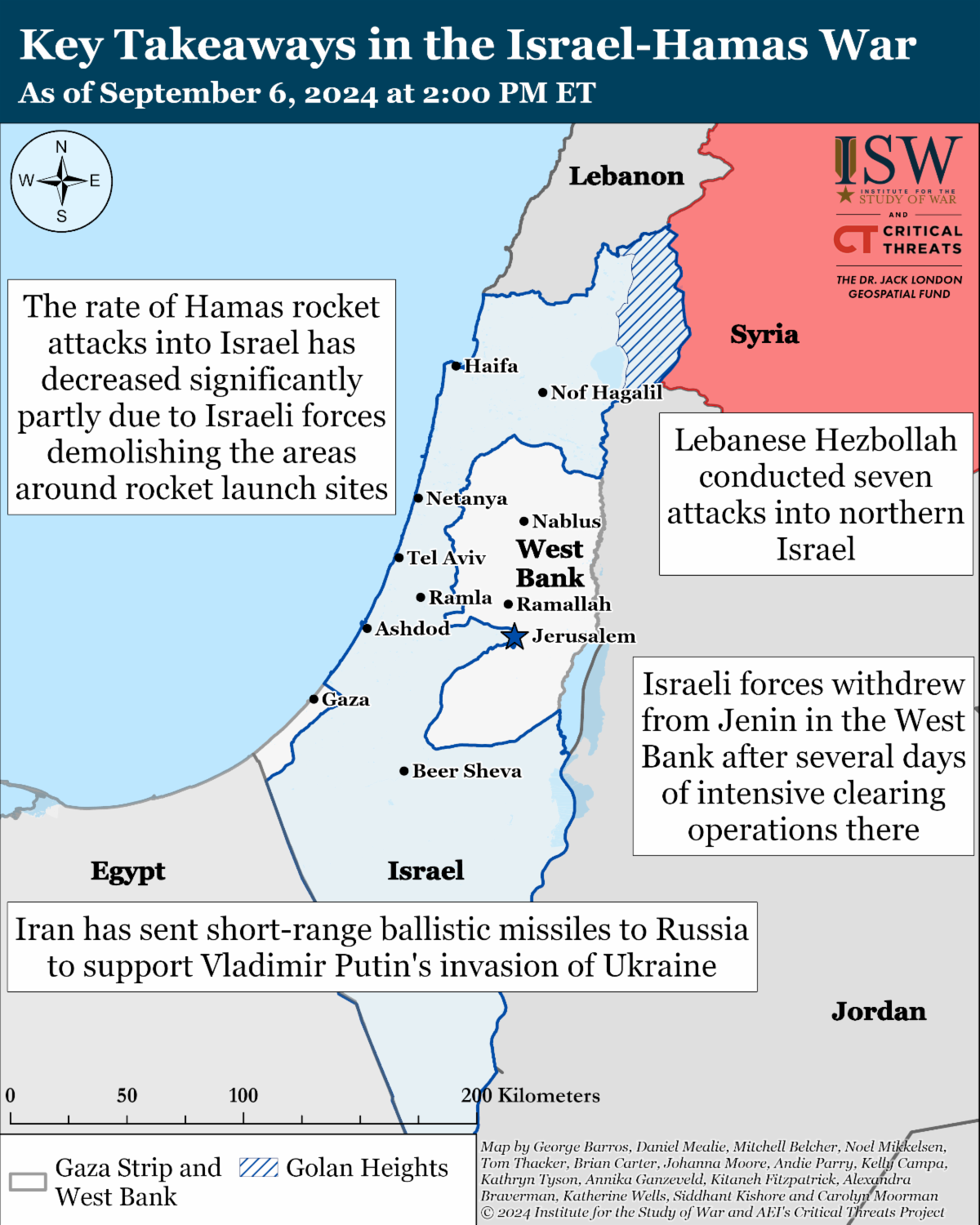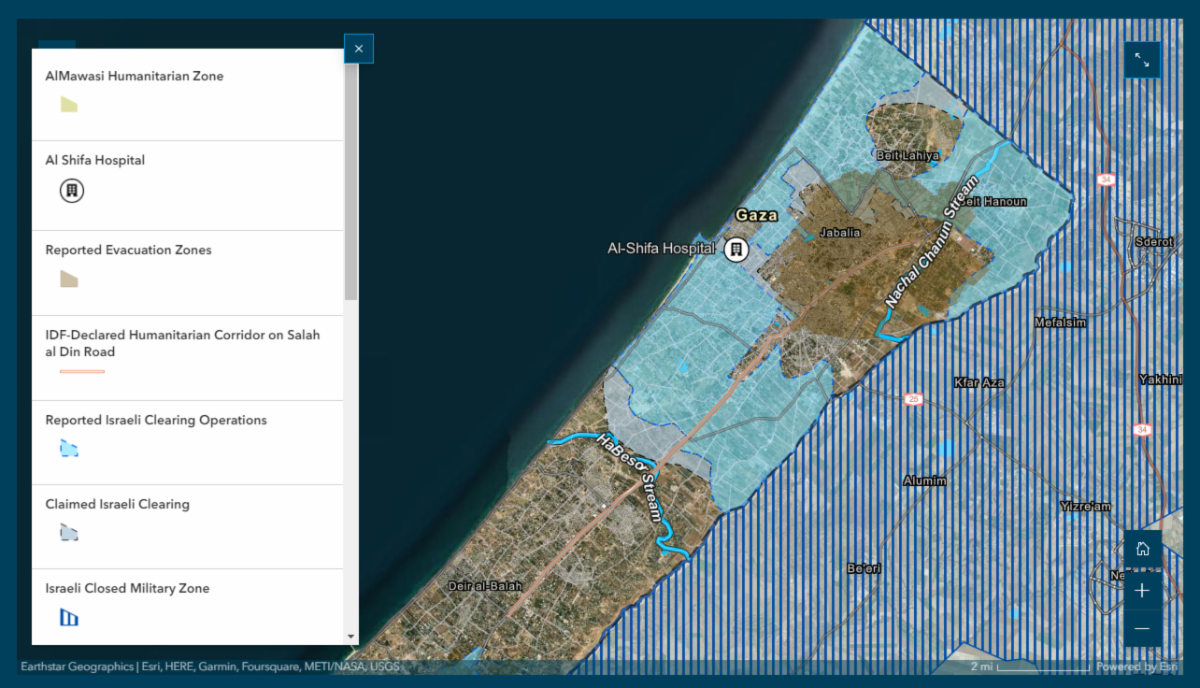Iran has sent hundreds of short-range ballistic missiles to Russia to support Vladimir Putin’s invasion of Ukraine, according to the Wall Street Journal. An anonymous European official told the outlet that more shipments of Iranian missiles to Russia are expected. Iran and Russia previously signed a contract in December 2023 to send Iranian Ababil close-range ballistic missiles and Fateh-360 short-range ballistic missiles to Russia. Ababil missiles have a range of around 86 kilometers and can carry a payload of 45 kilograms, while Fateh-360 missiles have a range of around 120 kilometers and can carry a payload of 150 kilograms. It is unclear, however, exactly what kind of missiles are included in the recently delivered shipment to Russia. Iran has meanwhile expanded at least two of its defense industrial sites outside Tehran throughout 2024 to support the production of drones and missiles, some of which are meant to go to Russia, according to Reuters. Russia has recently intensified drone and missile attacks into Ukraine, notably continuing to use Iranian-developed Shahed-131/136 drones and North Korean ballistic missiles. Russia will likely use Iranian-provided ballistic missiles to target Ukrainian energy, military, and civilian infrastructure over the coming fall and winter to further destabilize Ukrainian society and to disrupt Ukraine’s defense industrial base.
The rate of Palestinian militia rocket attacks from the Gaza Strip into Israel has decreased significantly in recent weeks. Israeli media reported that this decrease is due to the Israel Defense Forces (IDF) beginning to immediately evacuate Gazan residents in areas from which rockets are fired and then demolishing buildings in the area. This approach often includes Israeli airstrikes targeting rocket launch sites. The IDF has reportedly pursued this approach regardless of the volume of rockets fired or where the rockets landed. CTP-ISW has observed rocket launches from the Gaza Strip into Israeli territory decrease significantly since June 2024, which is consistent with the reporting of this new Israeli approach. The decrease is also likely due to the Hamas stockpile of rockets dwindling. Gazan residents have reportedly pressured Hamas to refrain from firing rockets from certain neighborhoods in response to this new Israeli approach. Clashes have erupted between Hamas members and residents in some cases, according to Israeli military officials. An IDF source said that, in one incident, a Gazan clan attacked Palestinian fighters with clubs as the fighters tried to fire a rocket.
Hamas has begun exploring new ways to pressure the Israeli public as firing rockets has become harder. Hamas has relied on its rockets for years to impose such pressure. But the loss of its stockpile and new Israeli approach have made this option decreasingly viable. Hamas has thus begun calling for suicide bombing attacks targeting civilians in Israel. Hamas claimed responsibility for an attempted suicide bombing in Tel Aviv in August 2024, marking the first time that Hamas has made such a claim since 2008.
Key Takeaways: - Iran-Russia: Iran has sent hundreds of short-range ballistic missiles to Russia to support the Russian invasion of Ukraine. Russia will likely use the missiles to attack Ukrainian civilian and military infrastructure over the coming months.
- Gaza Strip: The rate of Palestinian rocket attacks from the Gaza Strip into Israel has decreased significantly in recent weeks partly due to the IDF beginning to immediately evacuate areas from which rockets are fired and then demolishing buildings in the area.
- Israel-Hamas ceasefire-hostage negotiations: Hamas has continued to conduct an information operation to erode Israeli willingness to continue fighting in the Gaza Strip and to pressure Israel to accept a ceasefire-hostage deal on terms favorable to Hamas.
- Caucasus: Iranian officials have continued expressing opposition to Azerbaijani efforts to link Azerbaijan proper to its Nakhchivan exclave going through Armenia. Tehran is responding to Russia changing its policy to support this connection.
- Iran: Senior advisers to Iranian Supreme Leader Ali Khamenei met with members of the newly formed Masoud Pezeshkian administration. These meetings reflect the close coordination between Khamenei’s and Pezeshkian’s circles.
| 






 [ISW] 러시아의 공세 캠페인 평가, 2024년 9월 6일
[ISW] 러시아의 공세 캠페인 평가, 2024년 9월 6일
 [국방부] 대한민국 군 장병의 자기개발 지원 제도
[국방부] 대한민국 군 장병의 자기개발 지원 제도